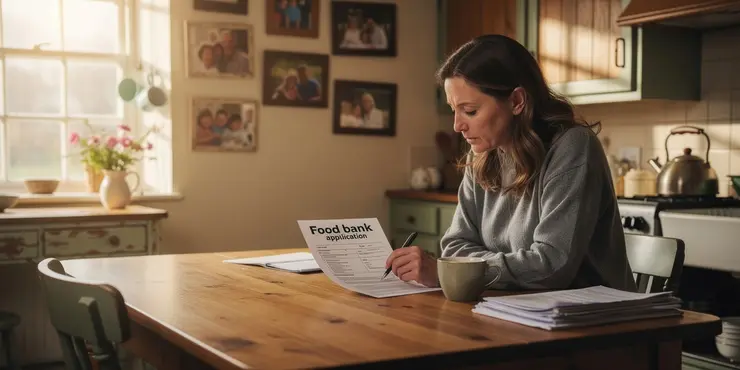
Find Help
More Items From Ergsy search
-
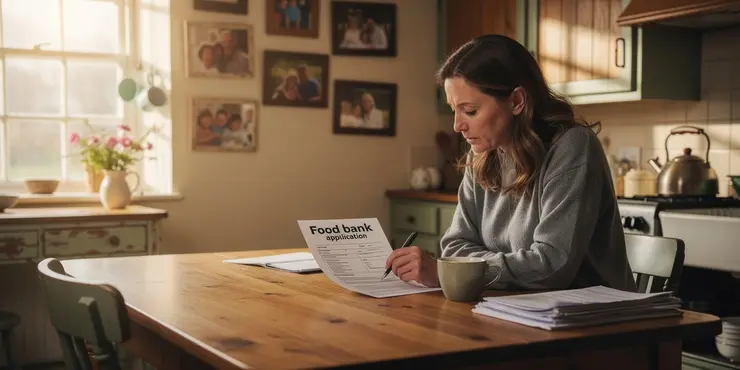
Do I have to provide personal information to access a food bank?
Relevance: 100%
-

What information do I need to access a food bank?
Relevance: 86%
-
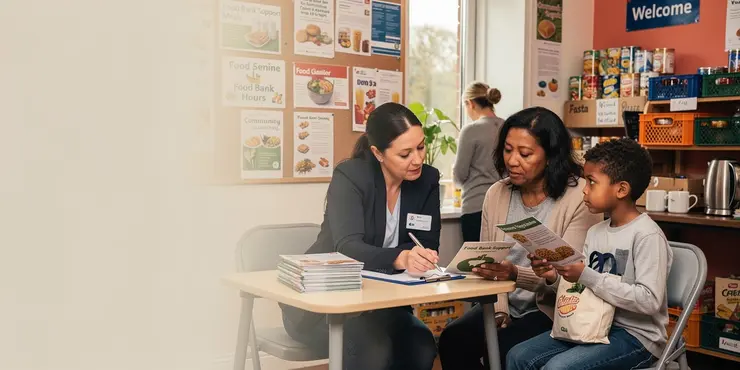
How can I access food banks?
Relevance: 71%
-
Can refugees or immigrants access food banks?
Relevance: 67%
-
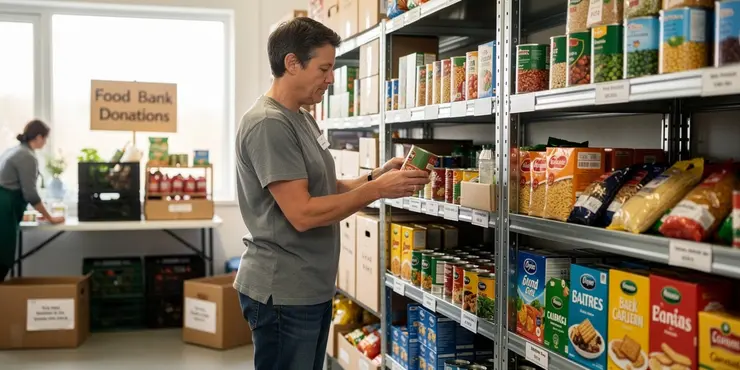
What is a food bank?
Relevance: 59%
-
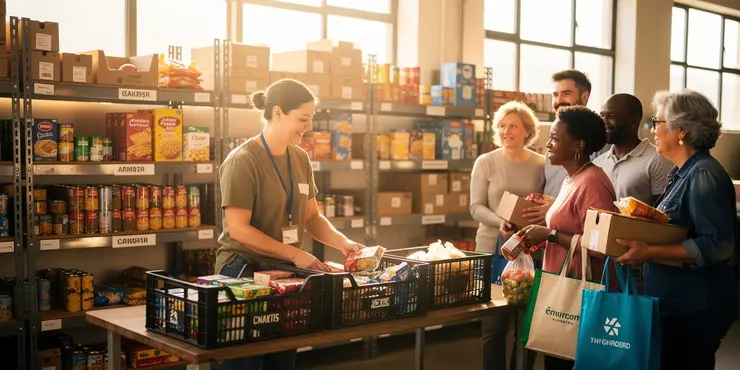
Is there a cost to receive food from a food bank?
Relevance: 59%
-
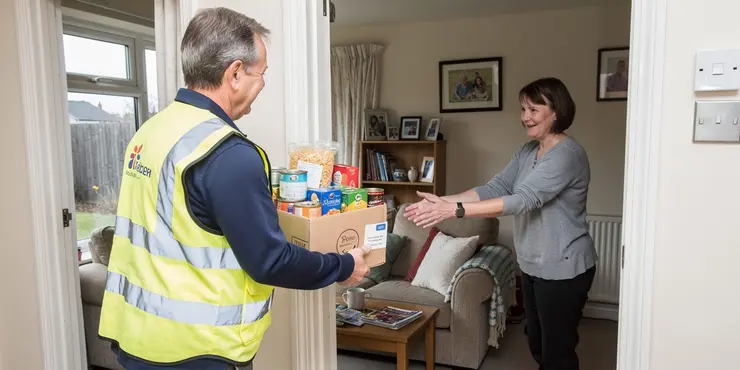
What if I can't physically visit a food bank?
Relevance: 57%
-
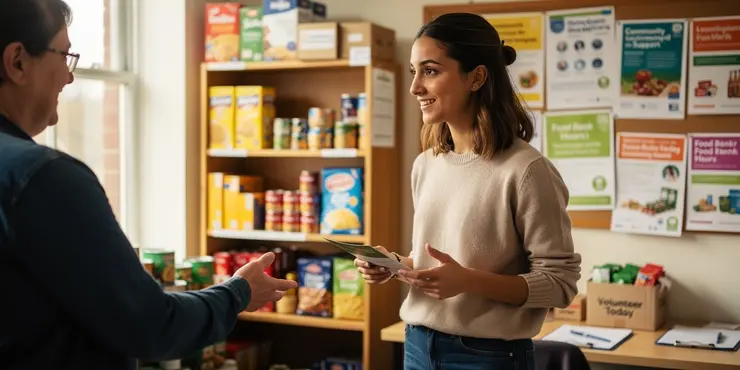
What if there is no food bank near me?
Relevance: 56%
-
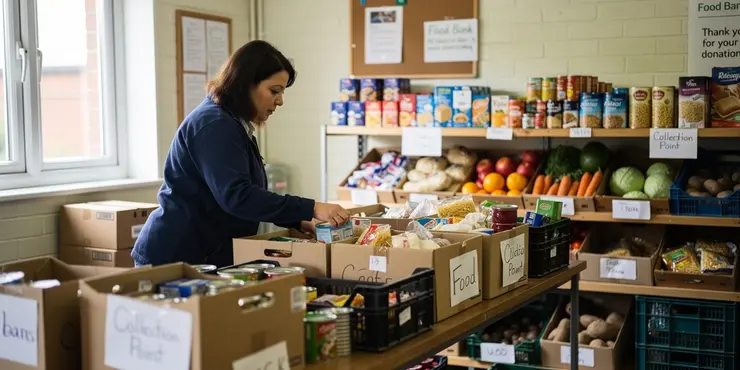
Are food banks open on weekends?
Relevance: 54%
-
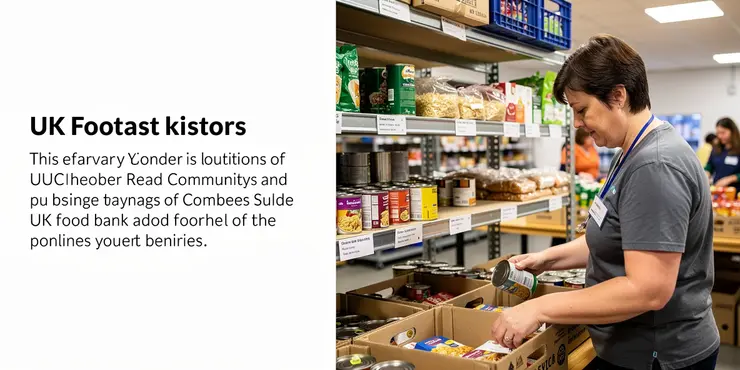
How do food banks get their food?
Relevance: 54%
-
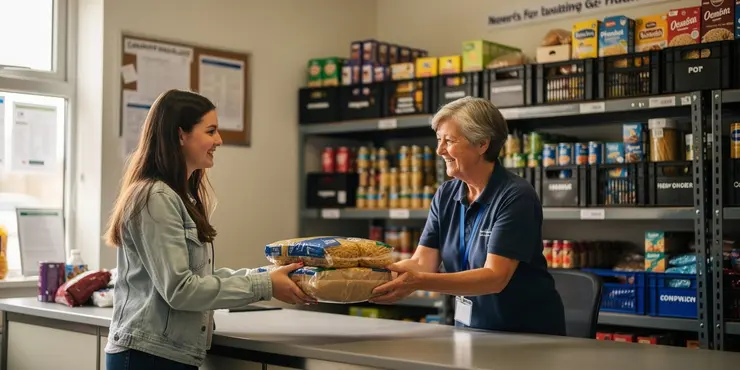
Can anyone use a food bank?
Relevance: 54%
-
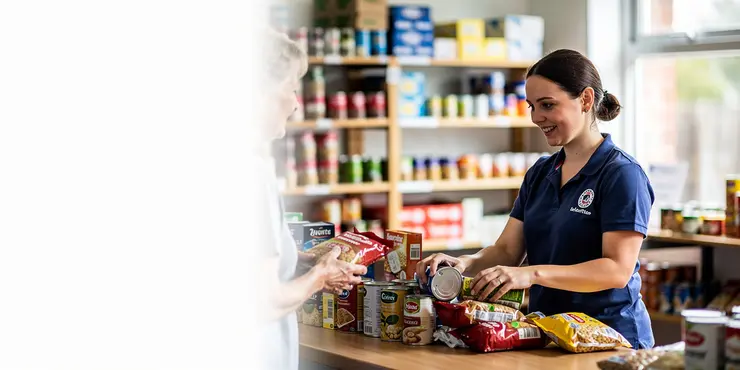
How often can I visit a food bank?
Relevance: 54%
-
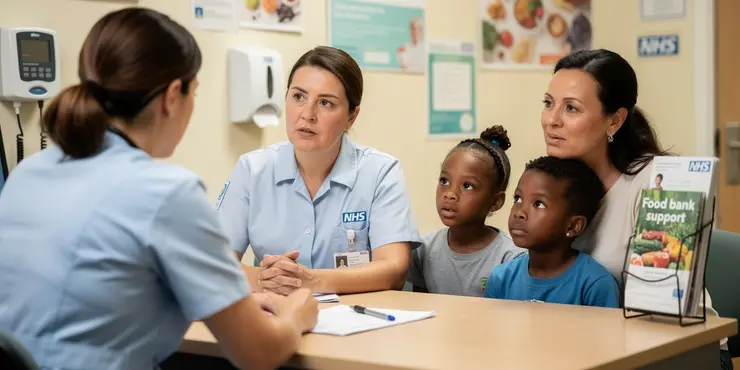
How can I find a food bank near me?
Relevance: 54%
-
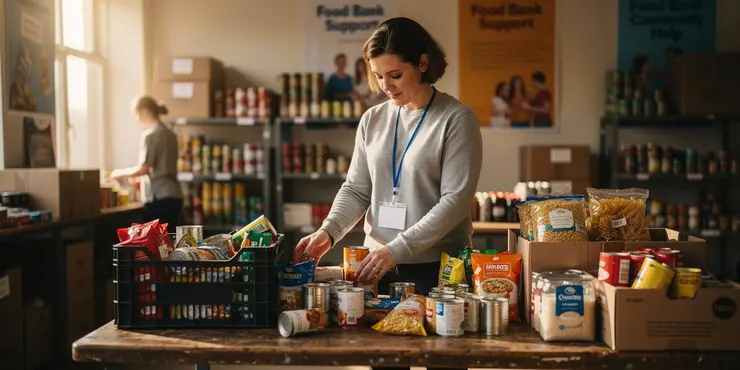
What types of food are typically available at a food bank?
Relevance: 53%
-
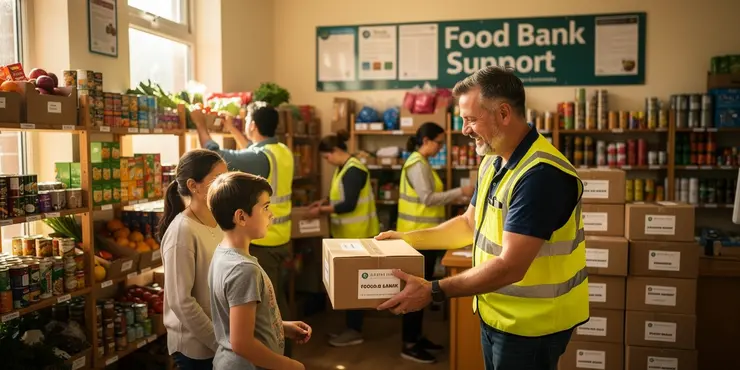
Is there a limit on how much food I can take from a food bank?
Relevance: 53%
-
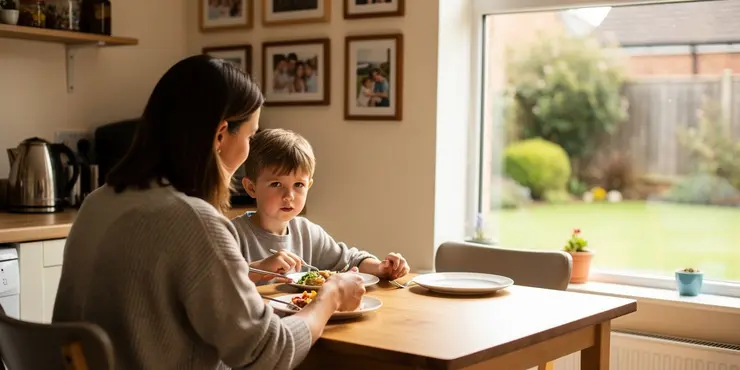
What is the difference between a food bank and a food pantry?
Relevance: 52%
-
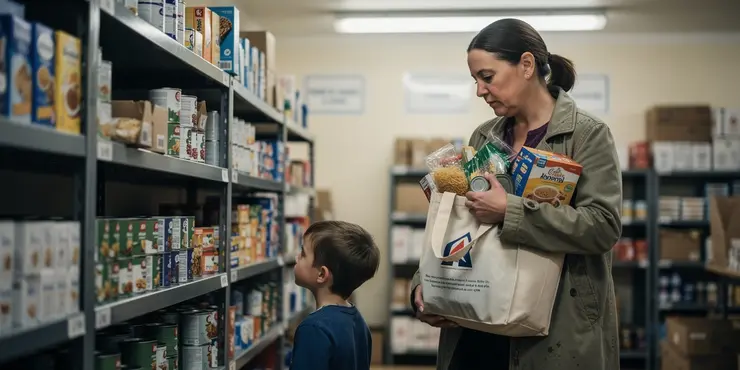
Rise in Food Bank Usage Amid Economic Challenges
Relevance: 50%
-
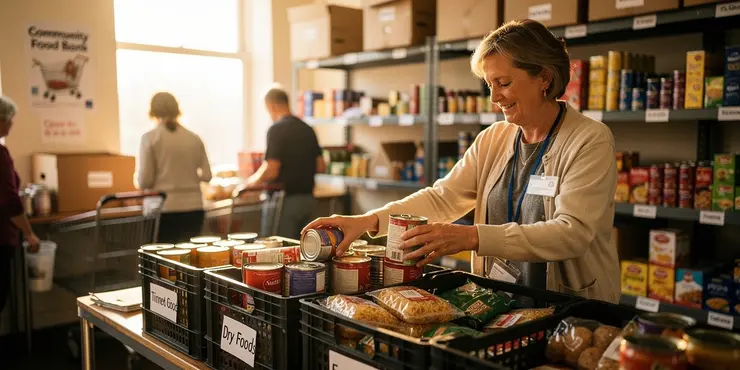
The Rise of Community Food Banks: Combating Hunger Locally
Relevance: 49%
-
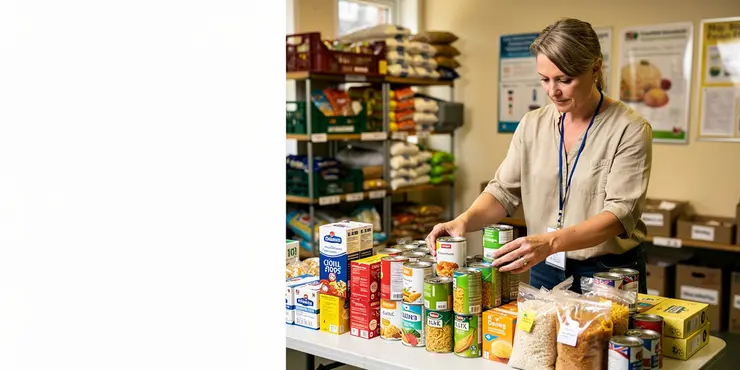
How can I support my local food bank?
Relevance: 49%
-
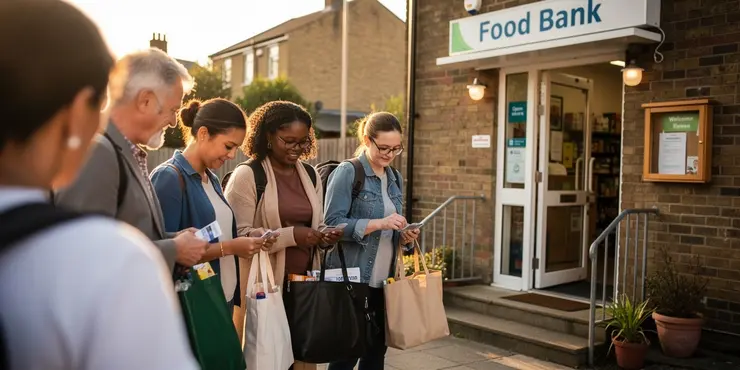
What should I bring with me when visiting a food bank?
Relevance: 48%
-
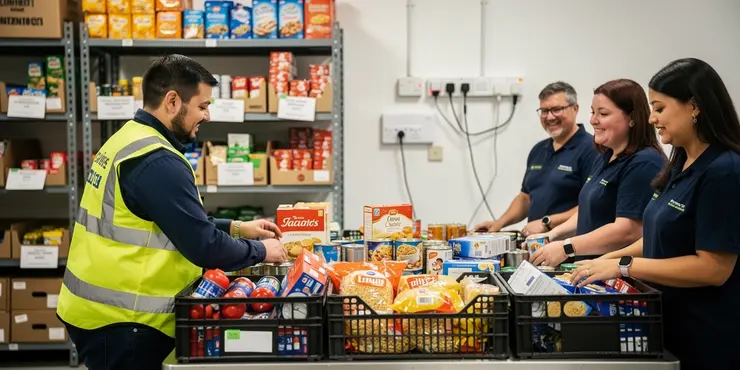
Can I volunteer at a food bank?
Relevance: 43%
-

What information do I need to provide to access my police records?
Relevance: 42%
-
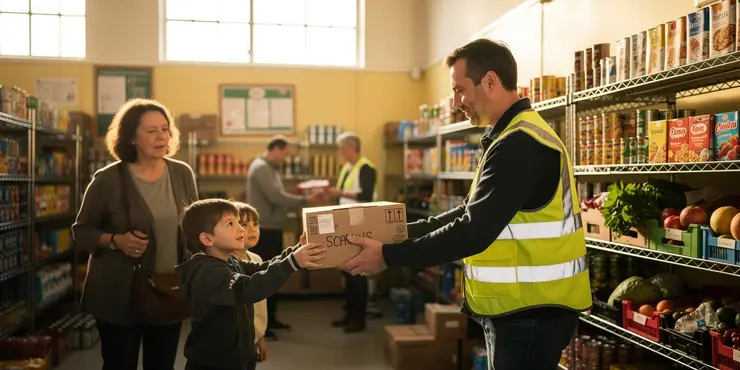
Do I need to make an appointment to visit a food bank?
Relevance: 39%
-

Can I trust online banks with my personal information?
Relevance: 39%
-
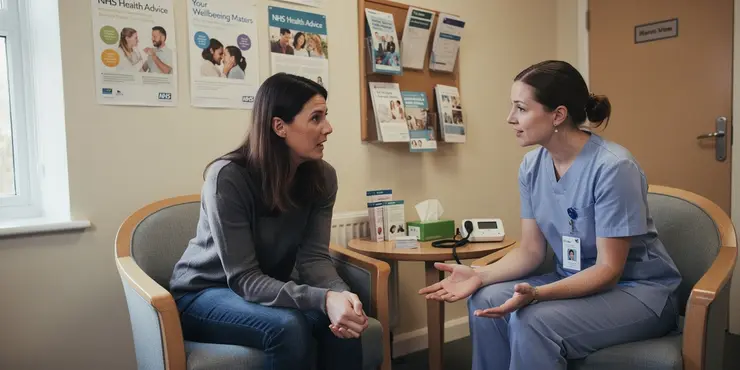
Can scammers access my information through social media?
Relevance: 37%
-
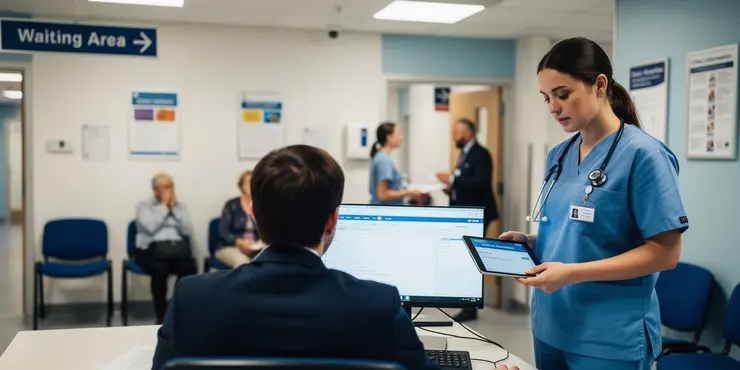
How do I know if my personal information was part of a data breach?
Relevance: 37%
-
Are online banks cheaper than traditional banks?
Relevance: 35%
-
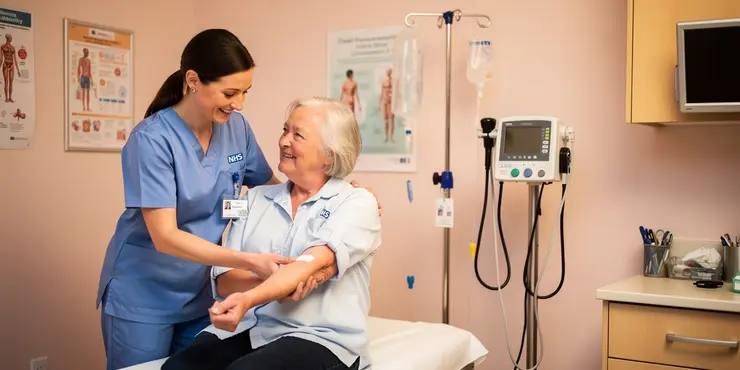
Do online banks offer investment options?
Relevance: 35%
-
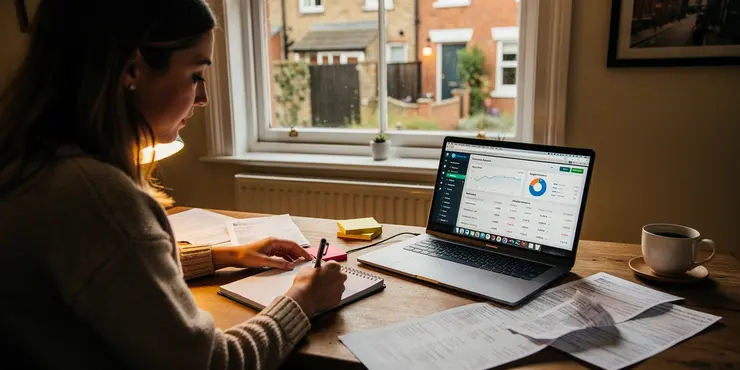
Are there benefits to having multiple bank accounts at different banks?
Relevance: 35%
-
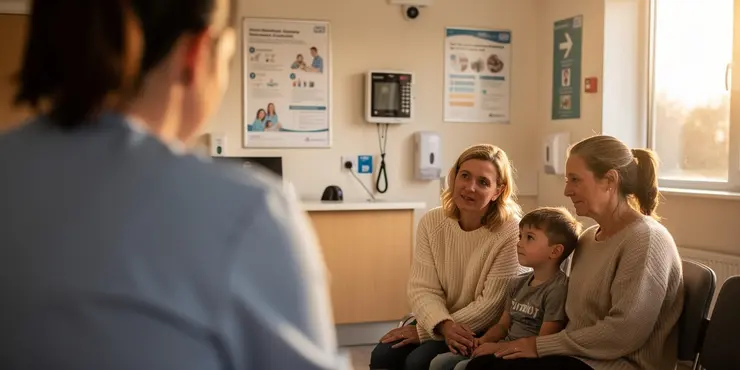
Charities Warn of Food Insecurity Amidst Rising Cost of Living
Relevance: 34%
-
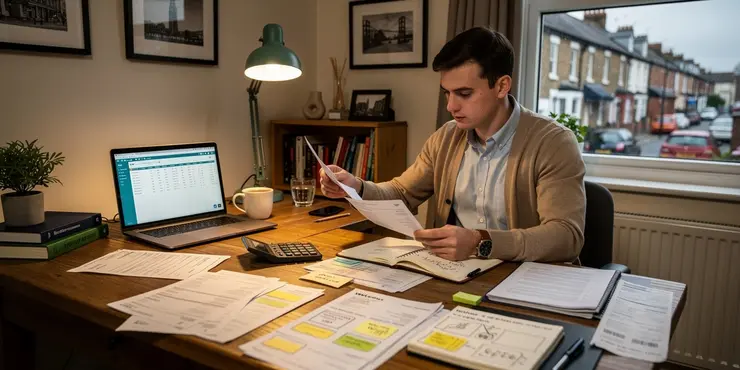
Are there benefits to having multiple bank accounts at different banks?
Relevance: 34%
-
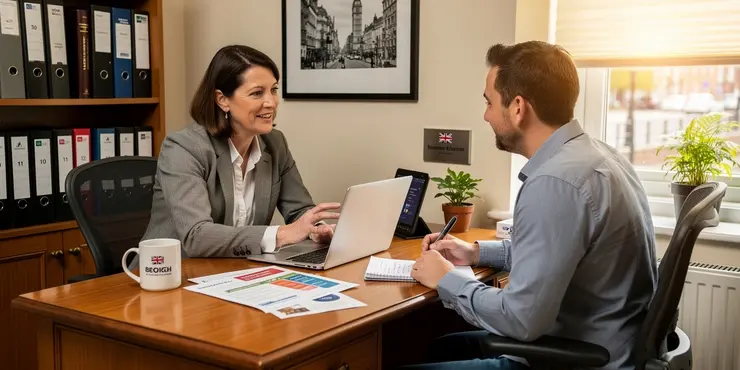
Are online banks cheaper than traditional banks?
Relevance: 34%
-
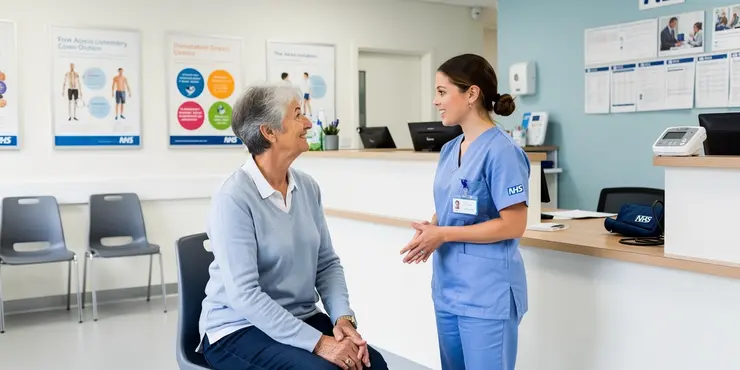
Can I access prostate cancer information online through the NHS?
Relevance: 33%
-
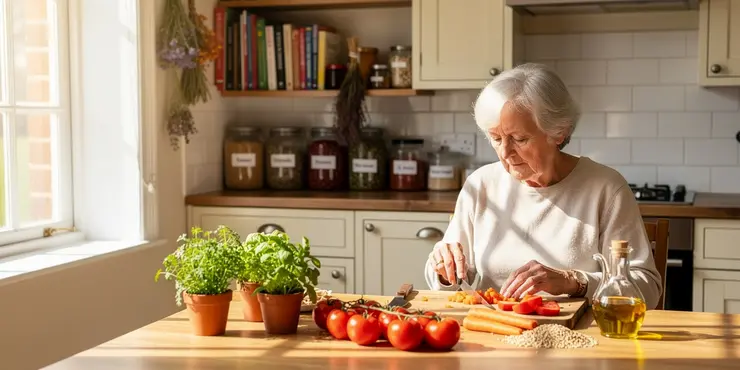
Are there any food assistance programs available for seniors?
Relevance: 32%
-
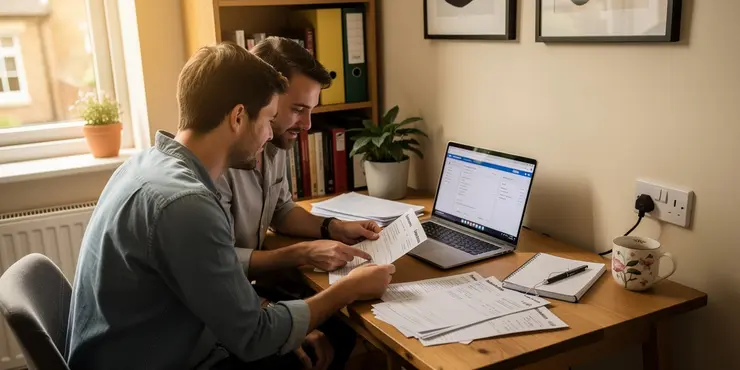
Are there any risks involved in switching banks?
Relevance: 32%
-
Are there any risks involved in switching banks?
Relevance: 32%
-
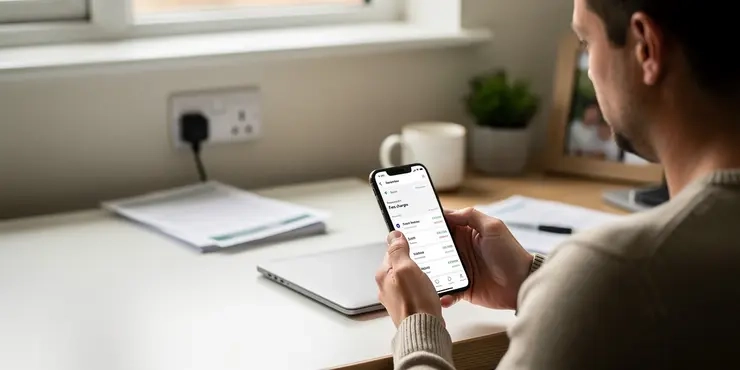
How does technology help in enhancing transparency in banking fees?
Relevance: 32%
-
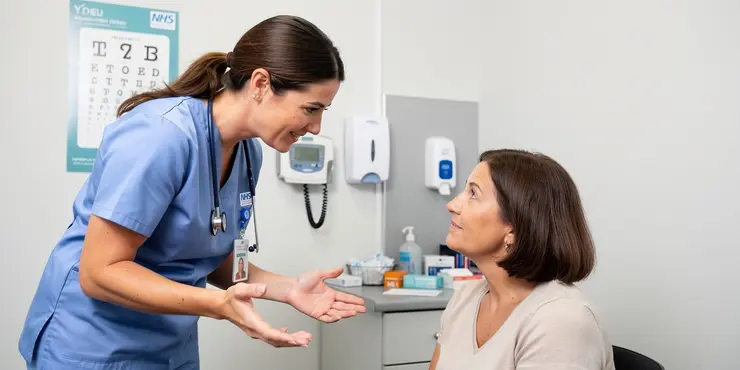
Can inmates have personal belongings?
Relevance: 31%
-
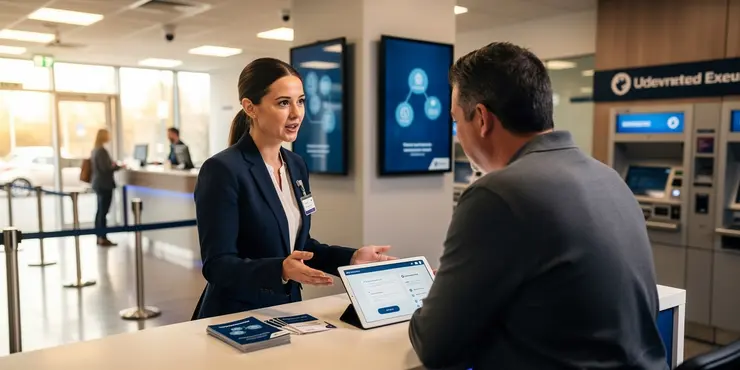
UK Banks Strengthen Security Measures Amid Rise in Online Scams
Relevance: 31%
-
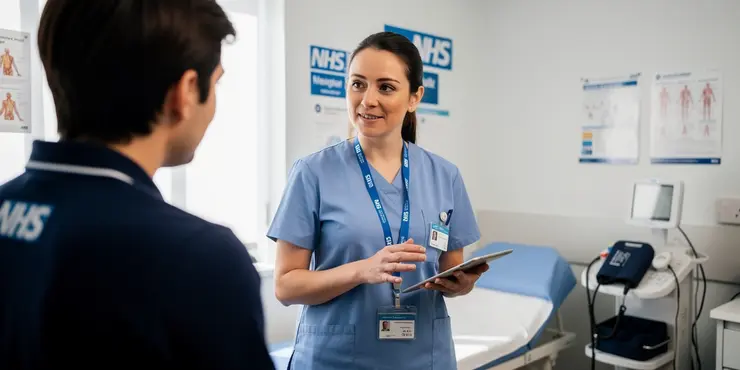
Are online banks like Monzo and Revolut safe?
Relevance: 31%
Understanding Access to Food Banks in the UK
Food banks provide vital emergency assistance for those in financial distress, but many people are unsure whether they need to provide personal information to access support. In the UK, food banks vary in their policies, but generally, some information is required to ensure the fair distribution of resources to those most in need.
Do I Have to Provide Personal Information?
Yes, to access a food bank, you will usually need to provide some basic personal information. This is often because food banks operate as part of a broader network of social support services, and collecting information helps them coordinate with these services. By knowing who is accessing their support, food banks can also better understand community needs and secure funding.
What Information is Typically Required?
The specific details requested can differ, but commonly, food banks may ask for the following:
- Full Name
- Number of people in your household
- Proof of identity or address (such as a utility bill)
- Reason for visiting the food bank
- Income level or employment status
It's important to note that the requirement for proof of identity or address is not universal, and some food banks may offer a more flexible approach.
Why is This Information Necessary?
The primary reason for collecting personal information is to prevent abuse of the system and to ensure those in genuine need receive the help they require. By understanding the background of those who use food banks, these organizations can better tailor their services and apply for relevant funding and resources. Additionally, this data enables them to monitor usage patterns and advocate for policy changes at local and national levels.
Confidentiality and Data Protection
Food banks in the UK must adhere to data protection laws, such as the General Data Protection Regulation (GDPR). This ensures that any personal information you provide is handled confidentially and securely. Food banks are committed to safeguarding your data and only use it for operational purposes. If you have concerns about privacy, it’s worth discussing them with the food bank staff directly.
Conclusion
While providing personal information might seem daunting, it is usually a necessary step to access the services of a food bank in the UK. This information helps to ensure that resources are allocated appropriately and that the food bank can continue to operate effectively. Always remember that food bank staff are there to assist you, and they understand the importance of treating your information with respect and confidentiality.
Understanding Access to Food Banks in the UK
Food banks are places where people can get food if they don’t have enough money to buy it. In the UK, rules can be different at each food bank. You will usually need to give some information about yourself so the food bank can help those who need it most. Don’t worry, it’s to make sure everyone gets the right help.
Do I Have to Provide Personal Information?
Yes, you usually need to tell the food bank some things about yourself. This is to make sure they can help you and others the best way possible. It also helps them work with other support services. Food banks need to know who they are helping so they can keep getting money and food to give out.
What Information is Typically Required?
Here are some things the food bank might ask you for:
- Your full name
- How many people live in your home
- Proof of who you are or where you live (like a bill)
- Why you need to visit the food bank
- Your income or if you have a job
Not all food banks ask for proof of who you are or where you live. Some might have different rules.
Why is This Information Necessary?
They ask for your information to make sure everyone who needs help gets it. It also helps food banks understand who is using their services so they can make their help better, ask for more food and money, and change rules if needed. This also helps them know how many people need help and why.
Confidentiality and Data Protection
Food banks in the UK follow privacy rules, so they keep your information safe and private. They only use your details to help you and run the food bank. If you are worried about your privacy, talk to the people working at the food bank. They are there to help, and they respect your privacy.
Conclusion
Giving your personal information to a food bank might seem scary, but it is important so they can help you. It helps food banks keep running and make sure everyone gets what they need. Remember, the people at the food bank want to help, and they will keep your information safe and private.
Frequently Asked Questions
Do I have to provide personal information to access a food bank?
It depends on the specific food bank. Many food banks ask for some basic personal information such as name, address, and household size to understand your needs and track usage statistics.
Why do food banks require personal information?
Food banks may require personal information to assess eligibility, provide appropriate services, and ensure fair distribution of resources.
Is my personal information kept confidential at a food bank?
Yes, food banks typically have policies to ensure that your personal information is kept confidential and used only for legitimate purposes.
Can I refuse to give personal information and still get food?
Policies vary, but some food banks may still provide food even if you refuse to provide personal information.
What type of personal information is typically requested by food banks?
Commonly requested information includes name, address, family size, and sometimes demographics or income level.
Do food banks share my information with other organizations?
Food banks may share information with partner agencies, but typically only with your consent and for the purpose of providing services.
Will providing personal information affect my ability to access other services?
Providing information at a food bank generally does not affect access to other services; it's used specifically for food assistance.
Are there food banks that allow anonymous access?
Some food banks may allow for more anonymous access, particularly during emergency distributions or specific events.
What if I don't have the documentation food banks request?
Many food banks have procedures for those without documentation, so it's best to contact them directly for guidance.
Why do food banks need to know my household size?
Knowing household size helps food banks distribute food more equitably based on family size and need.
Is the requirement to provide personal information the same for all food banks?
No, each food bank may have different requirements based on local guidelines and policies.
How do food banks use my personal information?
Food banks use your information to track service usage, ensure equitable distribution, and improve services.
Can I update my personal information with a food bank if it changes?
Yes, you should inform the food bank of any changes to your personal information to ensure accurate assistance.
What privacy protections are in place at food banks?
Food banks usually have privacy policies to protect your data, including how it's stored, used, and shared.
Are there legal requirements for food banks to collect personal information?
Food banks may follow certain legal guidelines but often collect information based on their policies to understand and serve needs better.
What should I do if I feel uncomfortable providing my information?
You can discuss your concerns directly with the food bank staff who may offer alternatives or explanations.
Do food banks use personal information for fundraising or marketing?
Personal information collected for food distribution is typically not used for fundraising or marketing without explicit consent.
What happens to my data if I no longer use the food bank services?
Food banks generally have retention policies that determine how long data is kept and the processes for data deletion.
Can I see what personal information a food bank has about me?
You can request to see your personal information held by a food bank, following their procedures for such requests.
Do I need to provide personal information every time I visit a food bank?
Once your information is in their system, you may not need to provide it each visit, but verification might be required occasionally.
Do I need to share my personal info to use a food bank?
When you go to a food bank, they might ask for some personal info like your name or address. This helps them understand who needs help.
If you feel unsure, you can ask someone at the food bank to explain why they need this info. It's okay to ask questions!
Here are some things that can help you:
- Bring a friend or family member for support.
- Ask the food bank staff if they have someone who can help explain things.
- Write down your questions before you go, so you remember to ask.
Each food bank is different. Most food banks will ask for simple information. They might ask for your name, where you live, and how many people live with you. This helps them know what you need and keep track of who uses the food bank.
Why do food banks ask for personal information?
Food banks give food to people who need help. Sometimes, they ask for some information about you. They do this to make sure they can help you and know how many people need food. It also helps them plan better so they have enough food for everyone.
If you find reading hard, you can ask someone you trust to read with you. You can also use tools like audiobooks or text-to-speech apps that read the text out loud.
Food banks sometimes need your personal information. This helps them know if you can get food, give you the right help, and make sure everyone gets their fair share.
If you find it hard to read, you can:
- Ask a friend or family member to help you understand.
- Use a text-to-speech tool that reads out loud.
- Break down the text into smaller parts to read slowly.
Will the food bank keep my personal information private?
When you go to a food bank, they might ask for some of your personal information. This is to help them give you the right support.
Food banks promise to keep your information safe and secure. They won’t share it with anyone else unless they have to by law or to keep you safe.
If you are worried or have questions about your information, you can ask the food bank staff. They are there to help you feel comfortable and safe.
If you need help understanding this, you can bring someone you trust to explain it to you. You can also use tools like a dictionary or ask someone to read it with you.
Yes, food banks usually have rules to keep your personal information private. They use your information only for the right reasons.
Can I say no to giving my information and still get food?
Every food bank is different. Some food banks might still give you food even if you don't want to share personal details about yourself.
What information do food banks usually ask for?
Food banks might ask for some information to help give out food. Here's what they usually need:
- Your name
- Your address
- Your phone number
- How many people live with you
If you need help, you can ask someone to fill out forms with you. You can also visit a library or community center for more support.
People often ask for your name, where you live, how big your family is, and sometimes your age or how much money you make.
Do food banks tell other groups my information?
Food banks may need to share some of your information to help you better. They only share if it is important. They do not tell everyone. If you have questions, ask them. You can also ask them to explain in a way you understand. It is okay to ask for help from a friend or family member too.
Food banks might talk with other groups to help you better, but they usually ask you first and only do it to give you support.
Will giving my personal information stop me from using other services?
If you give your personal information, it won't stop you from using other services. Your information helps make services work better for you. But it's good to know how your information is used. If you feel unsure, you can ask someone you trust, like a family member or a support worker, to help you understand.
There are tools to help you, like using a computer program that reads text out loud. You can also use simple word lists or ask questions. This makes things easier to understand.
When you give your information at a food bank, it usually won't stop you from getting other help. It's mainly used to give you food support.
Can you get food from a food bank without telling anyone who you are?
Some food banks let you get food without telling them your name. This means you can keep your information private.
To find these food banks:
- Ask an adult for help.
- Look for information online.
- Call local community centers.
It’s okay to ask for help when you need food.
Some food banks might let people get food quietly. This can happen at special times or events. It means people don't have to give a lot of information to get help.
What if I don't have the papers food banks ask for?
If you don't have the papers that food banks ask for, don't worry. Talk to the people at the food bank. They might still be able to help you. You can also bring some other types of papers to show who you are. Ask a friend or family member to go with you, if it helps. You can also try calling the food bank before you go to see what they can do for you.
Food banks can still help even if you don't have the right papers. It is a good idea to call them and ask what you should do.
Why do food banks ask about my family size?
Food banks ask about the number of people in your family so they can give you the right amount of food.
If you tell them how many people are in your family, they can help you better. This way, every person in your family gets enough food.
Using pictures or symbols can help you understand this information. You can also ask someone you trust, like a family member or friend, to explain it to you.
Knowing how many people live in a home helps food banks give the right amount of food to each family. This makes sure that every family gets what they need.
Do all food banks ask for the same personal information?
When you go to a food bank, they might ask you for some information about yourself. This could be your name and where you live. But not all food banks ask for the same things. Some might want to know more, or less, about you.
To help understand what you need to bring, you can:
- Call the food bank first. They can tell you what you need.
- Look at their website for information.
- Ask someone who has been to the food bank before for advice.
No, different food banks might ask for different things. This depends on the rules and guidelines where they are.
How do food banks use my personal information?
A food bank is a place that gives food to people who need it.
When you go to a food bank, you might have to tell them some things about you. This is called personal information.
Personal information could be:
- Your name
- Your address
- Your phone number
Food banks use your information to:
- Know who you are
- Understand what help you need
- Make sure they give you the right food
If you need help with reading or understanding, you can:
- Ask a friend or family member to help
- Use a reading tool on your computer or phone
Food banks use your information to see how many people use their help, make sure everyone gets a fair share, and make their service better.
Can I change my details at the food bank if they are different?
If your details change, tell the food bank. This keeps their information about you correct.
You can use a friend, family member, or support worker to help you tell them.
Yes, tell the food bank if your information changes. This way, they can help you better.
How do food banks keep your information private?
Food banks have rules to keep your information safe. They tell you how they keep it, use it, and if they share it.
Do food banks have to ask for your personal information by law?
Food banks have rules they need to follow. They sometimes ask people for information so they can help them better. This helps them know what people need.
What to Do if You Don't Want to Share Your Information
If sharing your personal details makes you feel uneasy or unsure, here is some helpful advice:
- Tell someone you trust about your feelings.
- Make sure you know why they need your information.
- Ask questions if you are not sure what will happen with your information.
- It's okay to say "no" if you do not want to share.
You can also use tools to help you feel safer, like:
- Check privacy settings on social media.
- Use simple "yes" or "no" questions to make things clearer.
- Ask for help from a friend or family member if you need it.
You can talk to the people who work at the food bank. They might help you understand things better or give you other choices.
Do food banks use your personal details to ask for money or send ads?
Your personal details collected for giving out food are usually not used for asking for donations or selling things unless you say it is okay.
What happens to my information if I stop using the food bank?
If you stop going to the food bank, they still have your name and other details.
You can ask them to remove your details. This means they will delete it from their records.
If you need help understanding this, ask a friend or use a tool to read it out loud.
Food banks have rules about how long they keep information and how they delete it.
Can I find out what information the food bank knows about me?
You can ask the food bank to tell you what information they have about you. They have a way for you to ask this.
Do I have to give my personal information each time I go to a food bank?
It's a good idea to ask the food bank what information they need. Sometimes, you might not need to give your details every time. You can write down what you need to tell them. This can help you remember it. You can also ask a friend or family member to help you.
When they have your information in their system, you might not need to give it every time you visit. But sometimes they might need to check it is right.
Useful Links
This website offers general information and is not a substitute for professional advice.
Always seek guidance from qualified professionals.
If you have any medical concerns or need urgent help, contact a healthcare professional or emergency services immediately.
Some of this content was generated with AI assistance. We’ve done our best to keep it accurate, helpful, and human-friendly.
- Ergsy carfully checks the information in the videos we provide here.
- Videos shown by Youtube after a video has completed, have NOT been reviewed by ERGSY.
- To view, click the arrow in centre of video.
- Most of the videos you find here will have subtitles and/or closed captions available.
- You may need to turn these on, and choose your preferred language.
- Go to the video you'd like to watch.
- If closed captions (CC) are available, settings will be visible on the bottom right of the video player.
- To turn on Captions, click settings .
- To turn off Captions, click settings again.
More Items From Ergsy search
-

Do I have to provide personal information to access a food bank?
Relevance: 100%
-

What information do I need to access a food bank?
Relevance: 86%
-

How can I access food banks?
Relevance: 71%
-
Can refugees or immigrants access food banks?
Relevance: 67%
-

What is a food bank?
Relevance: 59%
-

Is there a cost to receive food from a food bank?
Relevance: 59%
-

What if I can't physically visit a food bank?
Relevance: 57%
-

What if there is no food bank near me?
Relevance: 56%
-

Are food banks open on weekends?
Relevance: 54%
-

How do food banks get their food?
Relevance: 54%
-

Can anyone use a food bank?
Relevance: 54%
-

How often can I visit a food bank?
Relevance: 54%
-

How can I find a food bank near me?
Relevance: 54%
-

What types of food are typically available at a food bank?
Relevance: 53%
-

Is there a limit on how much food I can take from a food bank?
Relevance: 53%
-

What is the difference between a food bank and a food pantry?
Relevance: 52%
-

Rise in Food Bank Usage Amid Economic Challenges
Relevance: 50%
-

The Rise of Community Food Banks: Combating Hunger Locally
Relevance: 49%
-

How can I support my local food bank?
Relevance: 49%
-

What should I bring with me when visiting a food bank?
Relevance: 48%
-

Can I volunteer at a food bank?
Relevance: 43%
-

What information do I need to provide to access my police records?
Relevance: 42%
-

Do I need to make an appointment to visit a food bank?
Relevance: 39%
-

Can I trust online banks with my personal information?
Relevance: 39%
-

Can scammers access my information through social media?
Relevance: 37%
-

How do I know if my personal information was part of a data breach?
Relevance: 37%
-
Are online banks cheaper than traditional banks?
Relevance: 35%
-

Do online banks offer investment options?
Relevance: 35%
-

Are there benefits to having multiple bank accounts at different banks?
Relevance: 35%
-

Charities Warn of Food Insecurity Amidst Rising Cost of Living
Relevance: 34%
-

Are there benefits to having multiple bank accounts at different banks?
Relevance: 34%
-

Are online banks cheaper than traditional banks?
Relevance: 34%
-

Can I access prostate cancer information online through the NHS?
Relevance: 33%
-

Are there any food assistance programs available for seniors?
Relevance: 32%
-

Are there any risks involved in switching banks?
Relevance: 32%
-
Are there any risks involved in switching banks?
Relevance: 32%
-

How does technology help in enhancing transparency in banking fees?
Relevance: 32%
-

Can inmates have personal belongings?
Relevance: 31%
-

UK Banks Strengthen Security Measures Amid Rise in Online Scams
Relevance: 31%
-

Are online banks like Monzo and Revolut safe?
Relevance: 31%


